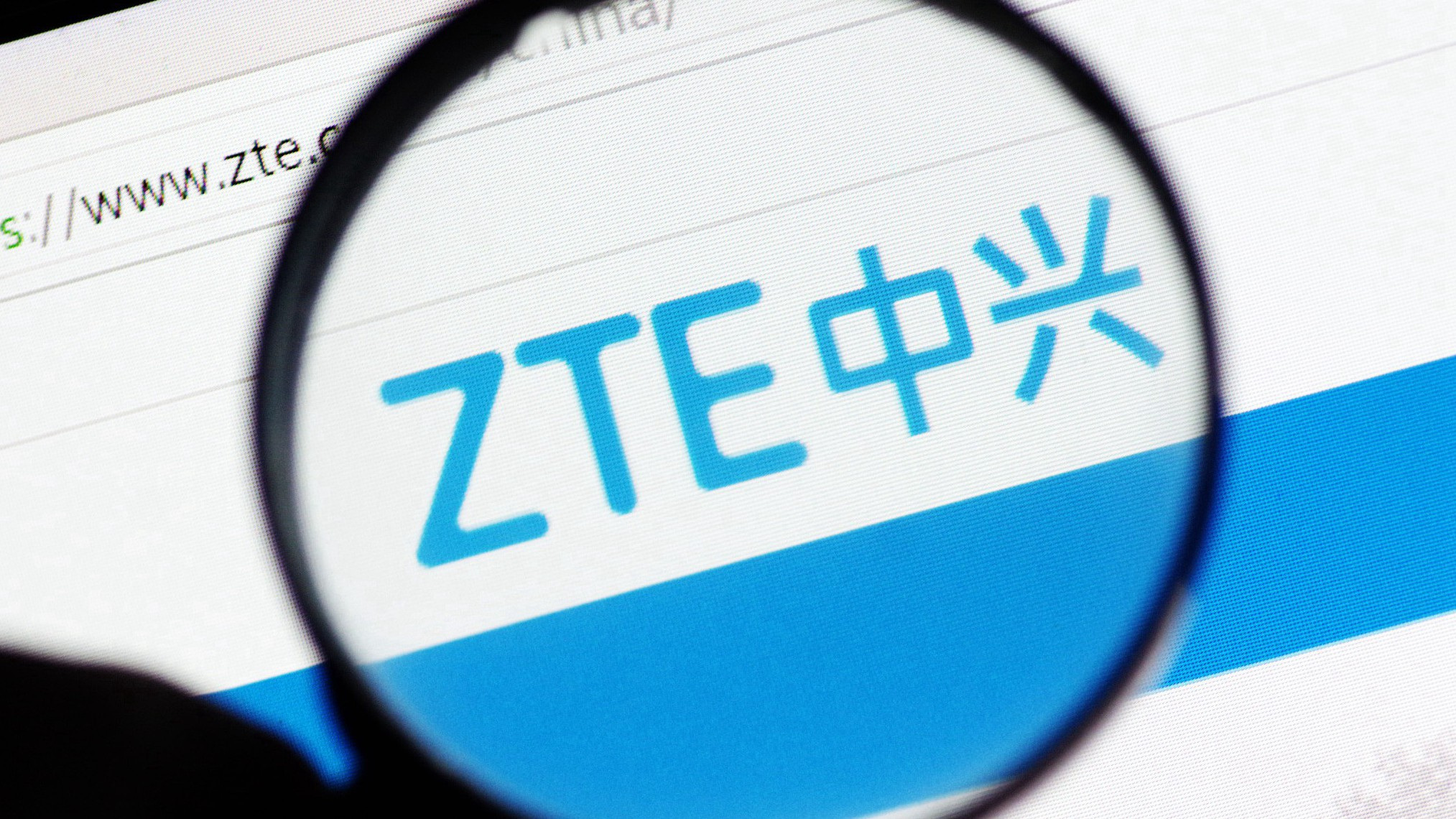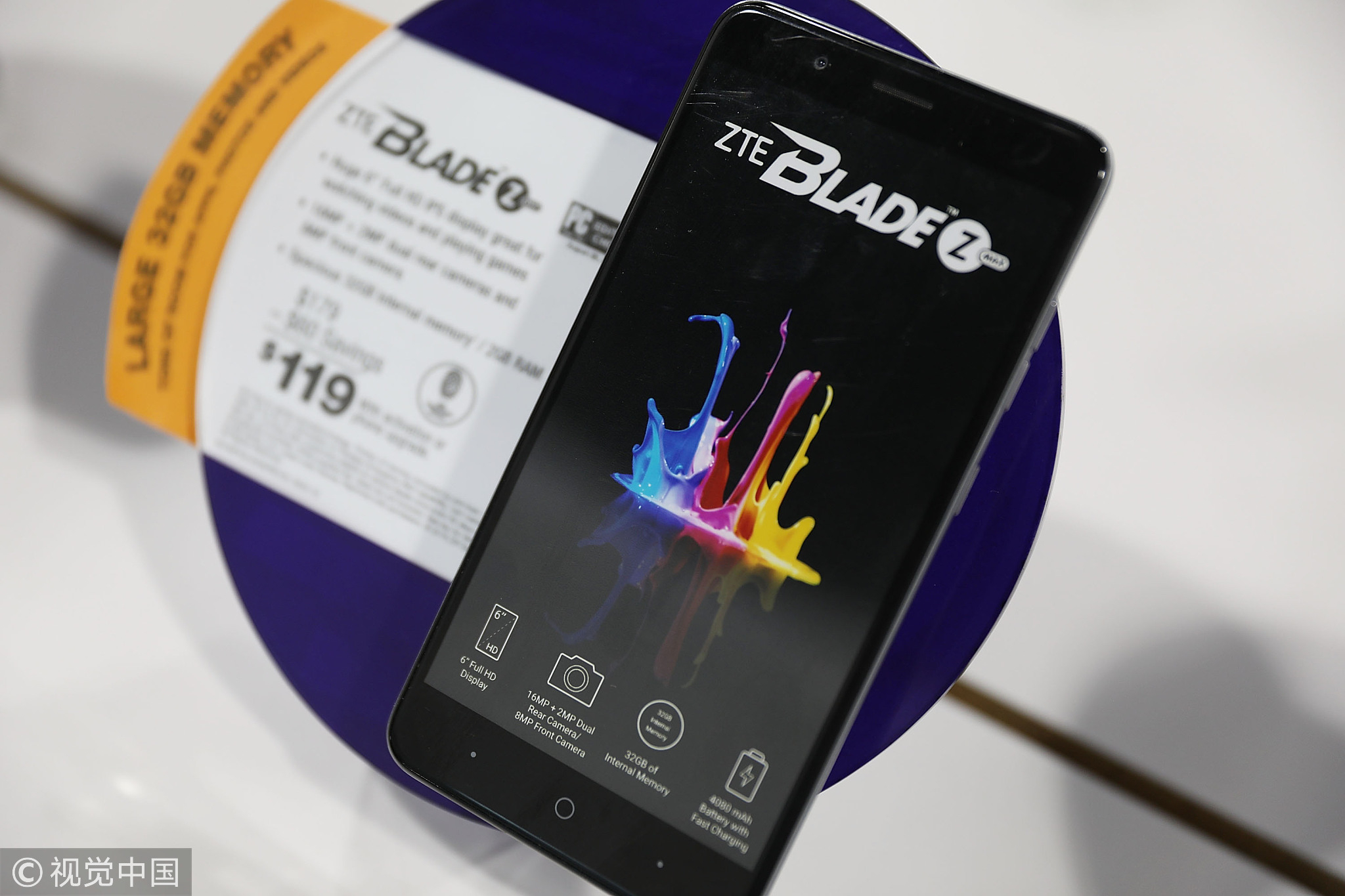
Opinions
15:45, 08-Jun-2018
Expert: It's time for ZTE to change its strategy
CGTN

Editor’s note: This article is based on an interview with Tao Zhang, the founder and managing director of Dao Ventures, a Sino-US cross-border group of impact-oriented companies and affiliates.
Chinese telecom company ZTE will pay a one-billion-US-dollar fine and hire a US compliance team, in a deal struck with the Trump administration that eases a seven-year ban on the purchase of American parts, US Commerce Secretary Wilbur Ross announced on Thursday.
The dispute seems to be reaching a conclusion that will satisfy both sides. However, moving forward, Chinese firms may rethink their strategies when approaching overseas markets after ZTE’s struggles.
Tao Zhang, the founder and managing director of Dao Ventures, shared his insights with CGTN. He indicated that it's time for ZTE and other Chinese tech firms to change their strategies in light of their limited innovation.
Tao was cautiously optimistic regarding how effective the new agreement will be for ZTE’s US aspirations. "Well, I think it's definitely saving ZTE's business in the US. But I think at the same time ZTE may need to change its strategy, particularly when it comes to its operations in the US and its partnership with some of the US companies," Tao said to CGTN.
In light of the US’ policy toward overseas tech firms with strong government backing, Tao believes ZTE may have realized its overreliance on US-made core technologies.

A cell phone manufactured by ZTE, China's number-two smartphone maker, is seen on a store shelf in Miami, Florida on May 14, 2018. /VCG Photo
A cell phone manufactured by ZTE, China's number-two smartphone maker, is seen on a store shelf in Miami, Florida on May 14, 2018. /VCG Photo
"I believe more than 60 percent of ZTE's components, especially for their smartphones, come from the US side. So I don't think they can reduce their reliance on technologies from the US in this area," Tao said.
However, Tao believes that ZTE understands that enhancing innovation in an effort to break away from dependence on US technology would be extremely difficult, and will not happen in the near future. As long as ZTE is reliant on US technology, there is no choice but to play the game by the rules the US has set.
Regarding electronics, the US market is the world’s largest and most challenging for overseas tech companies, especially government-backed companies such as ZTE. The US government’s tightened grip on control could be a move to help the interests of US companies, Tao explained.
Given the difficulty to quickly innovate and thereby free itself from a heavy reliance on American-made parts, Tao believes ZTE should shift its focus from smartphones to a broader range of products that are less dependent on US tech.
ZTE should put its efforts into creating products that will be successful internationally, not “just smartphones or some of the other telecom equipment for which they must use US technology," Tao said.
In addition, Tao suggests ZTE broadens its gaze to other markets, especially developing markets such as South Asia and Africa. He believes that Chinese tech firms may hold an advantage in penetrating these markets due to cost effectiveness.

SITEMAP
Copyright © 2018 CGTN. Beijing ICP prepared NO.16065310-3
Copyright © 2018 CGTN. Beijing ICP prepared NO.16065310-3